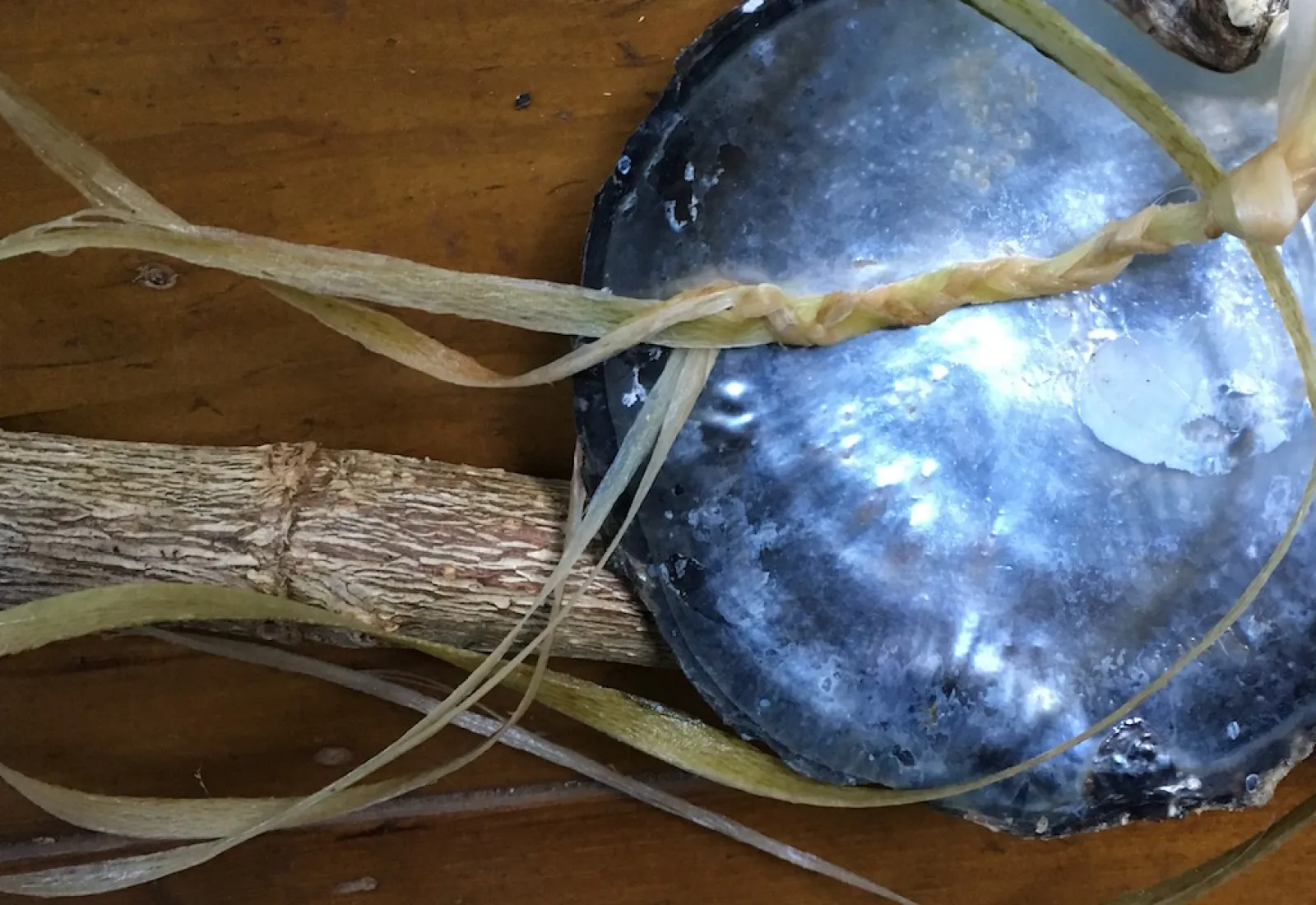
Students will learn how to make a kerikeri, a traditional digging spade used on atolls. They will braid their own cording materials, then use the cord to attach the handle to the shell blade.
Ready ... set ... dig!
Make a shovel
Students will construct spades from shells, cording made from purau bark, and a hardwood pole - Cordia or mikimiki.
Materials: pre-drilled shells (nacre), 3-5 cm diameter branches for handles, lengths of purau for making the cord.
Procedure: The cording should be braided tightly enough so that it will easily fit through the holes drilled in the shells. The shells can also be used to smooth the bark from the piece of wood which will be used as the handle. Students could work in pairs when attaching the shell, as the cording must be pulled very tightly.
Some students may wish to make scale-models for use in a diorama display. If a scale model will be made, some measurements should be made before starting so that the maite, the figurines, and tools are all to the same scale.

How can I make it better?
After trying out their shovels, the class should meet and discuss the advantages and disadvantages of their implementations of the basic design.
Questions:
- Do you think your shovel needs to be improved?
- What would you change, and why?
- How could you change it using only natural materials found on an atoll?
- Which part of the shovel would benefit most from the use of modern materials?
Follow up:
Students design and draw a 'new and improved' version of their shovels. All types of 'found' materials, natural and man-made (recycled) can be used in the design. Encourage divergent thinking. The new designs can be built and tested ... cycle of innovation.
Onetahi

